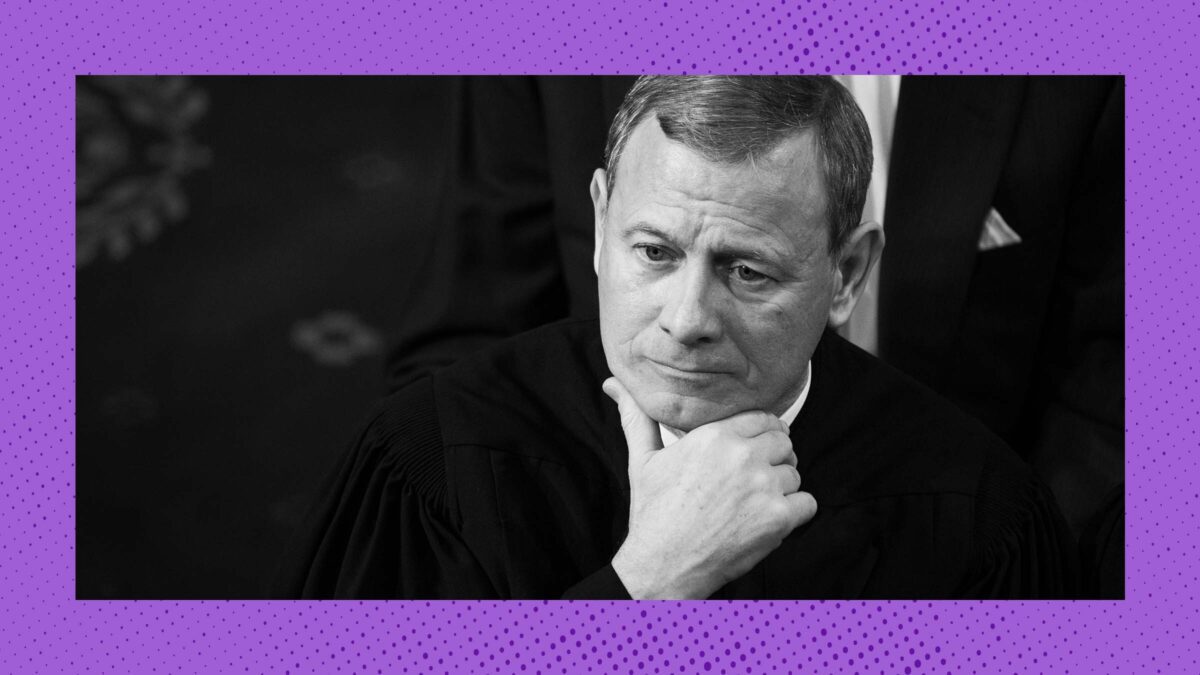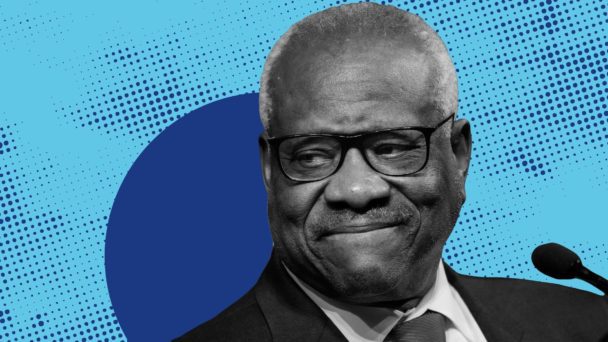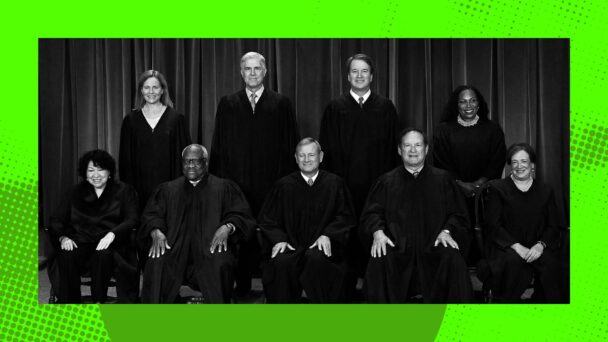On Wednesday, Chief Justice John Roberts, author of the Supreme Court’s 2024 decision declaring that presidents can do crimes sometimes, told a 600-person audience that one of the primary responsibilities of the judiciary is to “check the excesses” of the president.
The chief justice delivered these remarks at a public event celebrating the 125th anniversary of the U.S. District Court for the Western District of New York. To mark the occasion, Roberts participated in a “fireside chat” with U.S. District Judge Lawrence J. Vilardo, an Obama appointee, and answered mostly-softball questions like, “I think most judges would agree that judicial independence is crucial. Do you agree?”
In response, Roberts characterized the establishment of a judiciary empowered to “strike down acts of Congress or acts of the president” as the “only real political science innovation” of the Constitution, and one that “doesn’t work if the judiciary is not independent.” Separately, in Trump v. United States, Roberts emphasized that Congress “may not criminalize” and courts may not “adjudicate a criminal prosecution” for actions within a president’s “exclusive sphere of constitutional authority,” the scope of which he left conspicuously undefined.
Among the most serious threats to judicial independence are Trump and other Republican politicians, who have taken to calling for impeachment (or worse) whenever a federal court blocks Trump from doing something. (Mere hours before Roberts’s remarks, Trump lambasted “activist judges” for “not letting me do the job I was Elected to do.”) Justice Ketanji Brown Jackson sounded the alarm about this trend at a judicial conference last week. “Across the nation, judges are facing increased threats of not only physical violence but also professional retaliation, just for doing our jobs,” she said.
When asked by Vilardo for his thoughts on the subject, Roberts reminded the crowd that Republicans who have a problem with a judge’s decision can always take it up with him and the conservative supermajority on the Supreme Court. “Impeachment is not how you register disagreement,” he said. “That’s what we’re here for.” This sounds nice enough. But Roberts has proved in decisions like Trump v. United States that he’s happy to help his fellow Republicans bend and break the law. He just wants them to let him work in peace.





